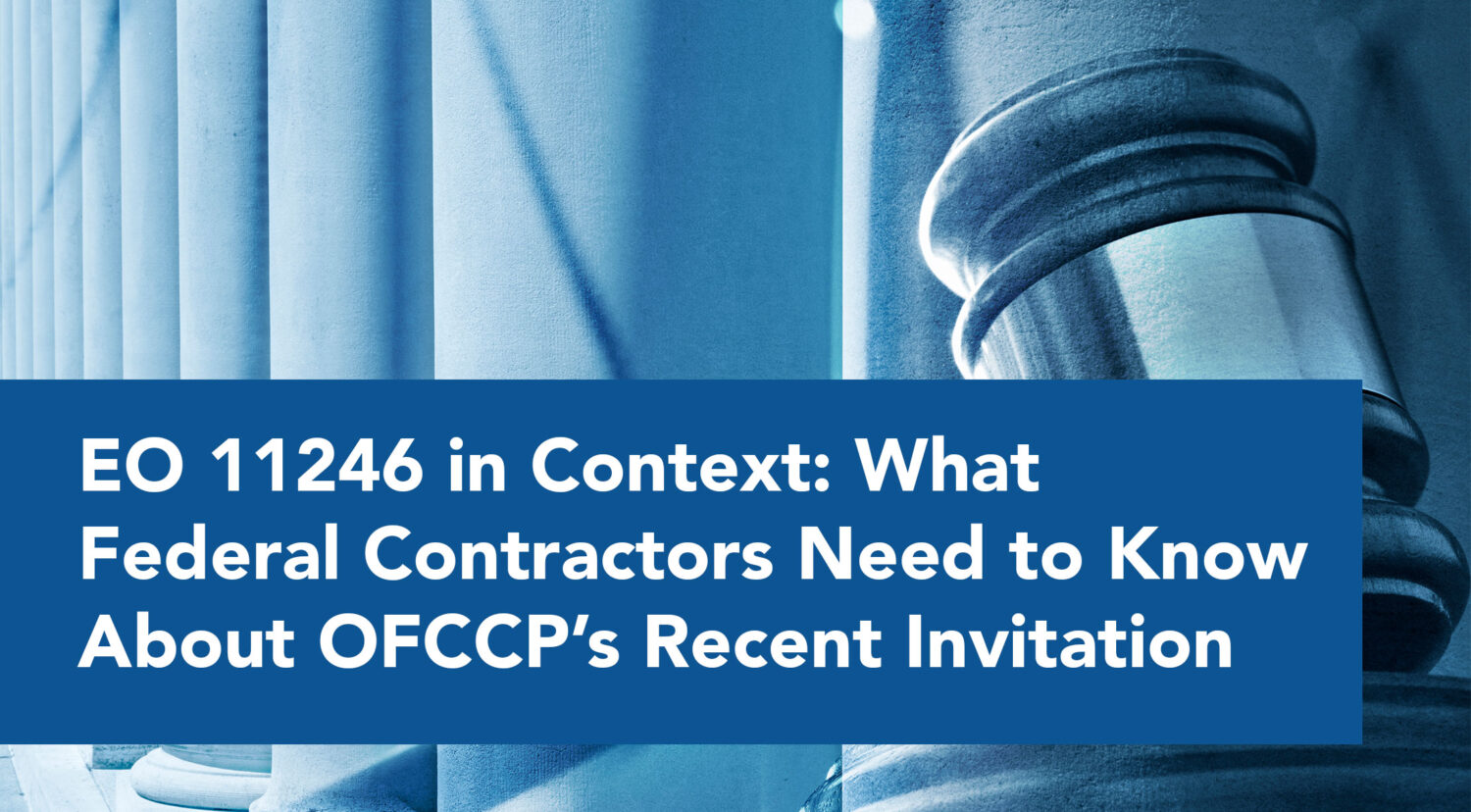With the new administration still getting its bearings, there was naturally some curiosity as to whether and when the interim director of the Office of Federal Contract Compliance Programs (OFCCP) would continue with issuing Courtesy Scheduling Announcement Letters (CSALs). The wait for an answer is over as of February 21, 2017, when CSALs signed by interim Director Tom Dowd were sent to the “Human Resources Director” of selected contractors.
CSALs are issued to federal contractors who have been chosen through the national office in Washington, D.C. from the Federal Contractor Selection System (FCSS) using neutral but undisclosed criteria. They are designed to give the contractor advanced notice of an upcoming audit of the contractor’s compliance. OFCCP sends out CSALs for several reasons including to allow contractors time to gather their documentation and support for the audit, to conduct self-audits to identify problem areas before OFCCP gets involved, and to take advantage of compliance assistance offered by OFCCP. Be aware! The OFCCP itself addressed on its website that A contractor establishment should not be scheduled for another compliance evaluation during the 24–month period following the date on which the prior review was closed. The OFCCP further advised that the establishment’s representative should call the local OFCCP office which issued the scheduling letter to inform them of the pending 24-month period. Click here for the OFCCP “FAQs”, and scroll down to the last question.
Under the Obama Administration, the last round of CSALs was issued several years ago in 2014. This is not as surprising considering that these are courtesy notices and not required by law. The lag of at least two years since the last letters also fueled much of the conjecture as to whether the new administration would continue with the tradition.
Since CSALs are a courtesy, not a formal notice, it is not necessarily the case that a contractor that receives a CSAL will actually be audited. Similarly, firms that are not issued CSALs may still be audited. Thus, perhaps their broadest purpose is to put all contractors on alert that OFCCP audits are on the horizon and that while some have been identified, all other contractors are not necessarily going to be overlooked.
Even those firms that are on the list and receive CSALs, there is still a great deal of uncertainty as to the type and scope of the potential audit. For example, OFCCP conducts audits based on contract award notices, directed reviews, conciliation agreements or individual complaints, or as part of the larger agency Corporate Management Compliance Evaluation (CMCE) or Functional Affirmative Action Plan (FAAP). Again, therefore, the fact that notices are going out is alone enough to require contractors to begin to review their Affirmative Acton Plans (AAPs), particularly with respect to requirements related to individuals with disabilities and veterans.
As of now, the actual list of contractors – and thus the scope of the audit net – is not known, and therefore, at a bare minimum, all federal contractors should be on the lookout for a CSAL. For those contractors who have a designated point of contact on the scheduling list that is issued in the scheduling cycle, the letter will likely be addressed to that person. For all other contractors, it will likely be directed to the generic “Human Resources Director”. Regardless of the addressee, however, any employees who handle the mail or correspondence should be advised to be on the lookout for the letter so that they can route it to the appropriate person when it comes in.
It is also important to note that the OFCCP may not necessarily send the letter to the headquarters of a contractor. Rather, CSALs are sent to any establishment on the scheduling list. If the establishment is not the same as the headquarters, it is the responsibility of the establishment to forward the letter to the headquarters. Thus, explicit instructions for establishments that may be part of a larger corporation to know to look for CSALs and then to send them on to headquarters is warranted.
Similarly, all contractors should use the time between now and when they may receive the CSAL or a formal audit notice to get prepared. This means reviewing the contractor’s AAP, identifying potential problem areas, and marshalling resources to be on stand-by in the event of an audit. This is beneficial even if the contractor does not end up being the subject of an audit as it will put the contractor in a better position for compliance going forward.
We will update as we get more information about the scope and reach of the audits.
For more information, contact Ahmed Younies at 714-884-4610 or [email protected].





